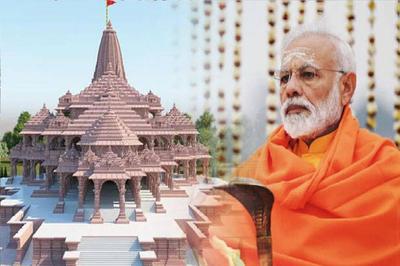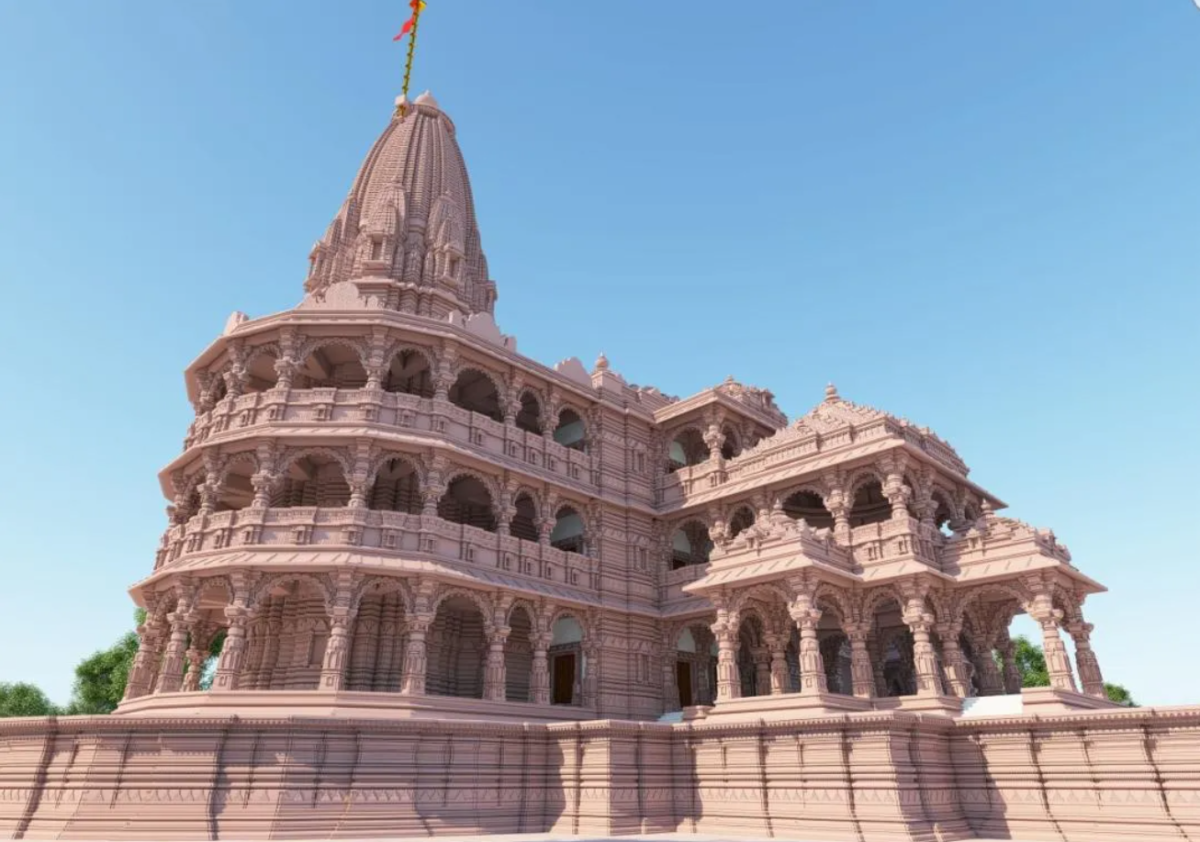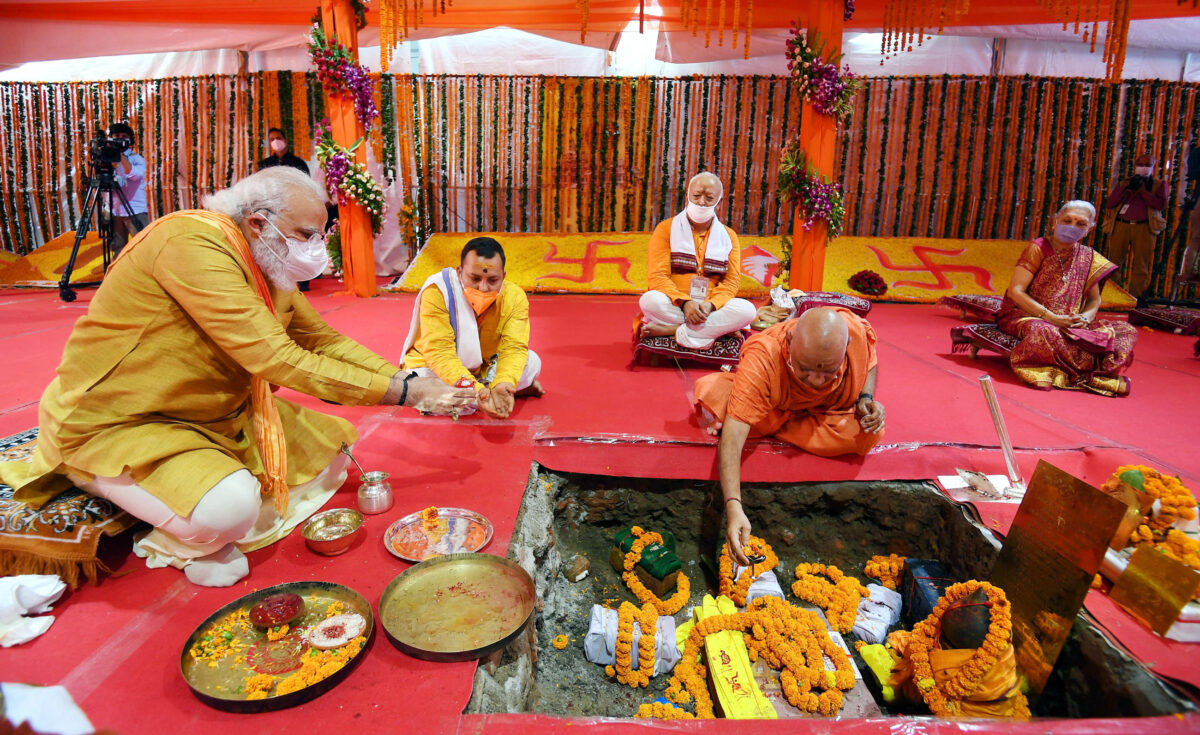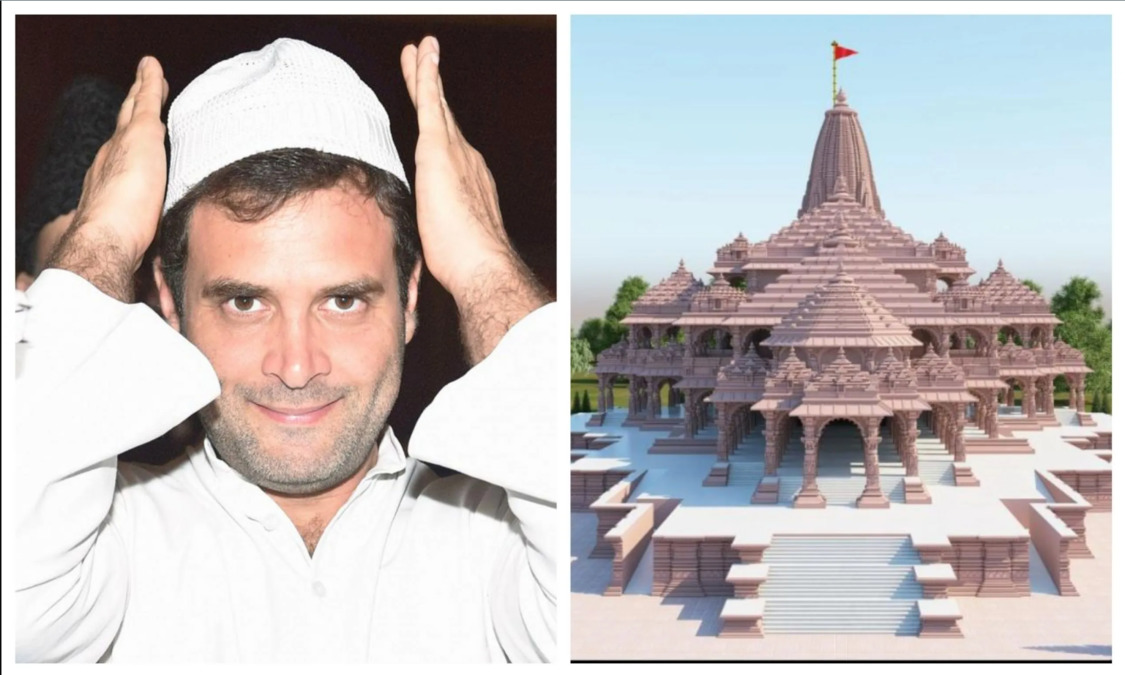The Ayodhya Ram Temple, a symbol of religious and cultural significance in India, has once again found itself at the center of a political storm. The recent Foreign Contribution Regulation Act (FCRA) clearance for the temple’s construction has ignited a fierce political feud between the Indian National Congress (INC) and the ruling Bharatiya Janata Party (BJP), exposing deep-rooted ideological differences and power struggles.
The FCRA, a law that regulates foreign donations to non-governmental organizations and other entities, has become a contentious issue in the context of the Ayodhya Ram Temple. The temple’s construction, which commenced in 2020 following a historic Supreme Court verdict, has been a pet project of the BJP, and it continues to be a point of pride for the party. However, with the FCRA clearance, concerns about transparency, foreign influence, and the misuse of funds have taken center stage in the political arena.
The controversy started when the Ayodhya Shri Ram Janmabhoomi Teerth Kshetra Trust, the body overseeing the temple’s construction, received FCRA clearance for funds from foreign donors. According to official reports, this clearance allows the trust to accept foreign contributions for the temple’s construction. While the BJP celebrated this as a significant milestone, the INC quickly raised concerns about potential misuse of funds and foreign influence in a religious and cultural project of national importance.
Table of Contents
The Historical Context : Ram Mandir
The Ayodhya Ram Temple controversy has deep historical roots that extend well beyond the recent FCRA clearance issue. It dates back to the 16th century when the Babri Masjid was constructed by the Mughal emperor Babur on the site believed to be the birthplace of Lord Ram. This historical dispute culminated in the demolition of the mosque in 1992 and a protracted legal battle that led to the Supreme Court’s historic verdict in 2019, which paved the way for the temple’s construction.

The BJP, since its inception, has been a vocal proponent of building the Ram Temple at the disputed site. The FCRA clearance is seen as a continuation of the party’s commitment to fulfilling this long-standing promise. The INC, on the other hand, has had a more cautious approach to the issue, emphasizing the need for secularism and unity in the diverse Indian society.
The BJP Perspective
The BJP, led by Prime Minister Narendra Modi and party president J.P. Nadda, has been vocal in its support for the Ayodhya Ram Temple construction. The FCRA clearance was seen as a validation of their commitment to the Hindu nationalist agenda, which includes the temple’s construction. The BJP contends that the FCRA clearance was granted after thorough scrutiny by the government, and all necessary precautions have been taken to ensure transparency and compliance with the law.
Prime Minister Modi, in a public address, emphasized the historic and cultural significance of the Ayodhya Ram Temple. He stated, “The construction of the Ayodhya Ram Temple is a momentous occasion for our nation. The FCRA clearance ensures that the temple will stand as a symbol of India’s rich heritage, funded by the devotion of millions of people from across the globe.”
The INC’s Concerns
On the other hand, the INC, led by Rahul Gandhi and Priyanka Gandhi Vadra, raised several questions and concerns about the FCRA clearance for the Ayodhya Ram Temple. he INC has demanded greater transparency in the funding and expenditure related to the temple’s construction. They argue that without a clear financial disclosure, there is room for corruption and misuse of funds. The INC has expressed concerns that foreign funds might lead to foreign influence over a project of immense national and cultural importance. They fear that this could alter the temple’s character or purpose.

Congress spokesperson Randeep Singh Surjewala questioned the timing of the FCRA clearance, alleging that it was a calculated move by the BJP to influence the upcoming assembly elections in several states. He further questioned the need for foreign funds for the construction of the Ram Temple, asserting that the temple should be built with the contributions of the Indian people.
Congress leader Priyanka Gandhi Vadra echoed similar sentiments, stating that the BJP was “playing politics” with the Ram Temple issue. She questioned the government’s priorities, suggesting that instead of focusing on foreign funds for the temple, the government should prioritize issues like unemployment and inflation.
The opposition party has accused the BJP of using the temple construction for political gains. The FCRA clearance, they argue, might be an attempt to appease a specific voter base. The INC has demanded that the Ayodhya Trust comply with all FCRA regulations and maintain complete records of foreign contributions.
Rahul Gandhi, addressing the media, said, “The construction of the Ayodhya Ram Temple is a matter of faith and cultural heritage. We support the temple’s construction but are deeply concerned about transparency, foreign influence, and the potential for political manipulation. The BJP must answer these concerns.”
BJP’s Response
In response to the INC’s concerns, BJP spokespersons have defended the FCRA clearance and argued that the trust is committed to adhering to all regulations. They have maintained that the construction of the Ayodhya Ram Temple is a matter of faith and should be above political controversies.
The BJP has vehemently defended the MHA’s decision, maintaining that the FCRA clearance was granted following due process and without any political considerations. BJP spokesperson Sambit Patra accused the Congress of politicizing a non-issue and attempting to create unnecessary controversy.

BJP leader and Union Minister Giriraj Singh slammed the Congress for its “hypocrisy,” pointing out that the Congress-led UPA government had also granted FCRA clearance to the Ram Temple Trust in 2011. He further accused the Congress of hindering the construction of the Ram Temple for decades.
BJP spokesperson Sambit Patra stated, “The Ayodhya Ram Temple is not just a temple; it is a symbol of our heritage and culture. The FCRA clearance is a testament to our commitment to this cause. We assure the nation that all contributions will be used transparently and in accordance with the law.”
The Legal Framework
The FCRA, enacted in 2010, was designed to regulate foreign contributions to NGOs and other entities to ensure that they are not used for activities detrimental to the national interest. Organizations receiving foreign funds under the FCRA are subject to strict reporting and compliance requirements.
The Ayodhya Shri Ram Janmabhoomi Teerth Kshetra Trust is registered under the FCRA to accept foreign contributions for the temple’s construction. The FCRA clearance allows it to receive foreign donations for the specific purpose of the temple’s construction. However, the recent controversy has raised questions about the extent to which these funds will be monitored and scrutinized.
Public Reaction and Opinion
The FCRA clearance for the Ayodhya Ram Temple has sparked discussions and debates among the general public and experts. Some argue that the clearance ensures that the temple’s construction continues unhindered, while others express concerns about transparency and foreign influence.

Religious leaders and organizations associated with the temple’s construction have expressed their support for the FCRA clearance. Mahant Kamal Nayan Das, a senior priest and treasurer of the Ayodhya Trust, said, “We welcome this decision, and we assure the nation that the temple will be constructed with the utmost transparency and devotion.”
Civil society organizations and legal experts have called for greater scrutiny of foreign contributions and the establishment of mechanisms to ensure accountability. They emphasize that transparency is essential to maintain the temple’s sanctity and the public’s trust.
Road Ahead
The FCRA clearance for the Ayodhya Ram Temple’s construction is likely to remain a contentious issue in Indian politics. The BJP and INC, as well as other political parties, will continue to debate the matter in Parliament and on public platforms.
To address concerns and maintain transparency, it is essential for the Ayodhya Trust to maintain clear records of foreign contributions and ensure that all expenditures related to the temple’s construction are above board. The involvement of independent auditors and regulatory bodies may also help allay fears of corruption and foreign influence.
The FCRA clearance for the Ram Temple Trust has further intensified the political rivalry between the BJP and Congress, especially in the context of the upcoming assembly elections. The BJP is likely to use the clearance as a symbol of its commitment to Hindutva and its efforts to fulfill the long-standing aspirations of the Hindu community.

On the other hand, the Congress is likely to continue its criticism of the BJP, accusing it of exploiting religious sentiments for political gains. The party may also try to project itself as a defender of secularism and minority rights.
As India moves forward with the construction of the Ayodhya Ram Temple, it must find a delicate balance between its cultural and religious significance and the need for transparency and accountability, as demanded by its democratic and legal framework. The temple’s construction should serve as a symbol of unity, cultural heritage, and faith for all Indians, irrespective of their political affiliations.
In the coming months, the political feud over the FCRA clearance for the Ayodhya Ram Temple is likely to continue, providing further insights into the dynamics of Indian politics and the intersection of religion and governance. The nation will closely watch how the government and opposition navigate this contentious issue while ensuring the temple’s sanctity and cultural significance are upheld.
Read More: Mosque Near Ram Mandir to Sell Land to Temple Trust for Rs 30 Lakh: Helpful Gesture



